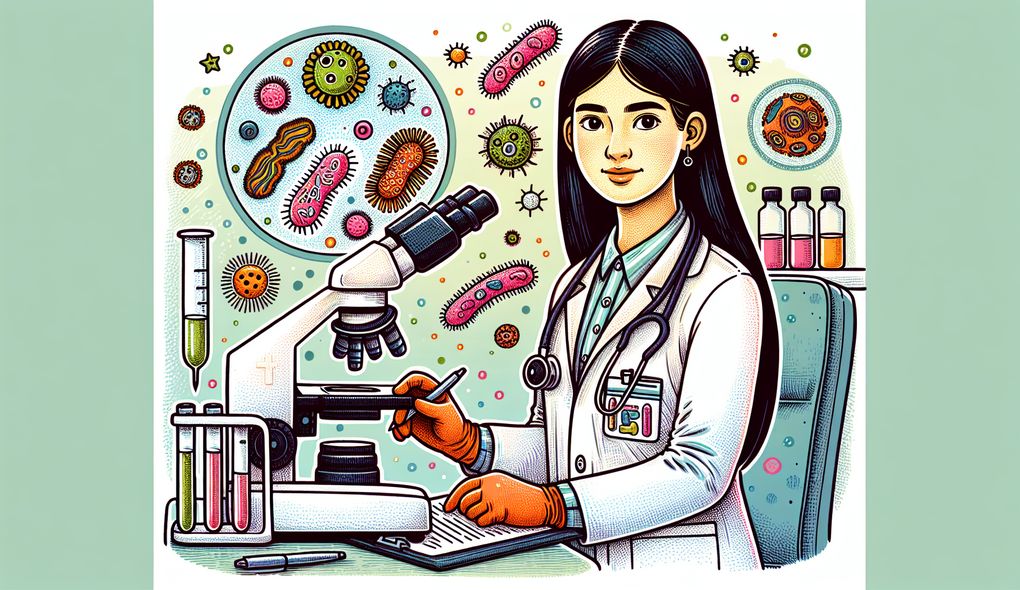How do you collaborate with other medical professionals to determine the best course of treatment for patients?
INTERMEDIATE LEVEL

Sample answer to the question:
I collaborate with other medical professionals by actively participating in multidisciplinary team meetings where we discuss patient cases, review test results, and share insights to determine the best course of treatment. We also communicate regularly through phone calls, emails, and face-to-face meetings to exchange information, discuss treatment options, and update each other on patient progress. Additionally, I make sure to attend conferences and workshops to stay updated on the latest research and developments in the infectious disease field, which allows me to bring new insights and treatment approaches to our collaborative discussions.
Here is a more solid answer:
Collaboration with other medical professionals is a vital part of my practice as an Infectious Disease Physician. I actively engage in multidisciplinary team meetings where we gather to discuss complex patient cases and collaborate on treatment plans. During these meetings, we review patient history, test results, and share our clinical expertise to determine the best course of treatment for each individual. Regular communication is maintained through phone calls, emails, and face-to-face discussions to exchange updates, seek input, and share vital information. Additionally, I continuously enhance my clinical knowledge and skills by attending conferences, workshops, and educational seminars. This ensures that I stay up-to-date with the latest advancements and treatment options in the field. By combining our collective knowledge, expertise, and perspectives, we are able to provide comprehensive and personalized care to our patients.
Why is this a more solid answer?
The solid answer expands on the basic answer by providing more details about the collaboration process, including the review of patient history and test results, and the exchange of clinical expertise. It also emphasizes the importance of continuous learning and staying updated with the latest advancements in the field. However, it could further improve by discussing specific examples of collaboration with different medical professionals and the impact it has on patient outcomes.
An example of a exceptional answer:
Collaborating with other medical professionals to determine the best course of treatment for patients is an essential part of my role as an Infectious Disease Physician. I engage in interdisciplinary conferences and case conferences, where experts from various medical specialties come together to discuss complex cases. By sharing our perspectives, knowledge, and experiences, we are able to develop comprehensive treatment plans that address the unique needs of each patient. In addition to these formal collaborations, I also maintain ongoing communication with primary care physicians, specialists, and allied healthcare professionals through regular meetings, emails, and phone calls. This ensures that we are updated on each patient's progress, test results, and any changes in their condition, allowing us to make informed decisions collaboratively. Furthermore, I actively participate in research studies and clinical trials, working closely with researchers, pharmacologists, and epidemiologists to test and develop new treatment modalities. This collaborative effort between academic institutions and clinical practice helps us stay at the forefront of infectious disease management. By incorporating insights from different perspectives and constantly seeking innovation, we strive to provide the best possible care to our patients.
Why is this an exceptional answer?
The exceptional answer goes above and beyond by highlighting the involvement in interdisciplinary conferences and case conferences, as well as ongoing communication with various medical professionals. It also emphasizes active participation in research studies and clinical trials, showcasing a commitment to advancing the field of infectious disease management. The answer is comprehensive, provides specific examples, and demonstrates a deep understanding of the collaborative nature of the role. To make it even stronger, the candidate could include specific outcomes or success stories resulting from collaborative efforts.
How to prepare for this question:
- Highlight experiences of collaborating with different medical professionals in your previous roles.
- Emphasize the importance of communication and active engagement in collaborative discussions.
- Describe how you stay updated with the latest research and advancements in the field.
- Share examples of successful collaboration and the impact it had on patient outcomes.
What are interviewers evaluating with this question?
- Communication
- Collaboration
- Clinical knowledge
- Continuing education

